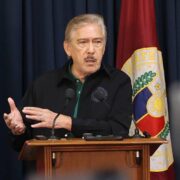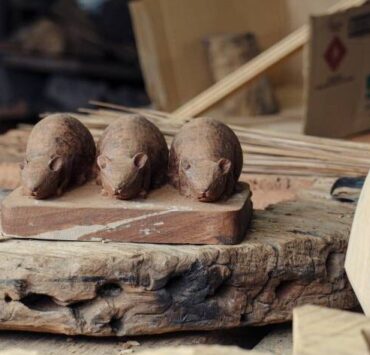Legacy and redemption

It may yet be President Marcos’ greatest legacy, and the most relevant way of redeeming his father’s name which has often been associated with human rights abuses during martial law. Presidential Spokesperson Claire Castro’s recent statement that the President is open to rejoining the International Criminal Court (ICC) is a welcome shift from his predecessor’s belligerent and disdainful regard for this first permanent tribunal prosecuting war crimes and impunity established in 2002.
Castro was responding to the call of United Nations special rapporteur Irene Khan, who urged the Philippine government to ratify international human rights treaties and reinstate its previous commitment to the Rome Statute of the ICC. “[Mr. Marcos] is open to it. The last time we spoke—since we’ve talked about this before—he said he was open to it,” Castro said.
On March 17, 2018, then President Rodrigo Duterte withdrew the country’s membership in the ICC when the tribunal charged him with crimes against humanity for the thousands of extrajudicial killings in his war on illegal drugs. Despite the withdrawal that took effect a year later in 2019, the ICC retained jurisdiction over alleged crimes that happened from November 1, 2011 to March 16, 2019, when the country was still its member.
This became the basis of the arrest warrant against Duterte, who was whisked off to The Hague, Netherlands, on March 11 to face trial before the ICC. It’s a move that 57 percent of respondents in a recent OCTA Research survey supported, and part of public opinion that Mr. Marcos is taking into account, his spokesperson said on Tuesday.
Commitment to human rights
“We haven’t discussed that yet … but sentiments like these from our fellow citizens are being heard by the President. So let’s just wait and see in the coming days what the President’s position will be [on] rejoining the ICC,” Castro said.
It was former president Benigno S. Aquino III who ratified the ICC’s Rome Statute in 2011, which the Senate subsequently concurred with. The Arroyo administration had failed to transmit the ratification instrument to the Senate, despite the upper chamber having requested for it since 2006.
The endorsement “enhances Philippine commitment to human rights and is our contribution to an effective international criminal justice system,” Aquino’s executive secretary Paquito Ochoa Jr. said of the treaty that complements Republic Act 9851. The law, envisioned to end impunity, enables the country on its own to prosecute international crimes.
Six years after the country’s withdrawal from ICC, it’s time to rethink the issue, human rights group Karapatan said early this year. “Duterte’s self-serving decision to withdraw from the Rome Statute was an attempt to escape accountability in the face of the ICC’s investigations into the mass killings of drug suspects,” Karapatan secretary general Cristina Palabay said.
Rule of law
It’s a timely call that Mr. Marcos should consider as a logical follow-up to his administration’s prudent move to surrender Duterte to the ICC. Having shown the community of nations how his administration stands for the rule of law, the President should disavow any attempt to water down such commitment with political considerations. Instead, he should shore up support for laws and treaties that hold errant individuals into account.
Because, despite protestations from some quarters on how well our justice system works, it can certainly use help and oversight from the ICC, the court of last resort for governments that refuse—or are unwilling—to prosecute powerful leaders operating outside the law.
As noted by political observer Tony La Vina: “After our horrible experience during the Duterte years, there is even more reason why we need to be part of this international effort to hold the worst human rights offenders responsible.”
Symbol of hope
For millions of victims of unimaginable atrocities, the ICC remains a symbol of hope that justice would prevail, as its 124 member nations are watching and putting pressure on governments to follow international law. As such, ICC investigations and prosecutions contribute to global efforts to prevent war crimes and crimes against humanity, attain peace, and build more stable societies.
With our Commission on Human Rights facing incessant challenges—recall that in 2017, it got a budget of only a thousand pesos for its criticism of rights abuses in Duterte’s war on drugs—knowing the ICC is keeping tabs can help pave the road ahead.
This is not to say that ICC membership would magically solve the problems in our imperfect justice system. “While we seek legal redress in international mechanisms such as the ICC, it is important that we strengthen our ranks to change the system that serves as the bedrock of impunity,” pointed out Karapatan’s Palabay.
Still, there’s no disputing that rejoining the ICC can only validate the Marcos administration’s claims to fighting corruption and impunity, a legacy that definitely puts it on the right side of history.





















3-year college: Reform or economic retreat?